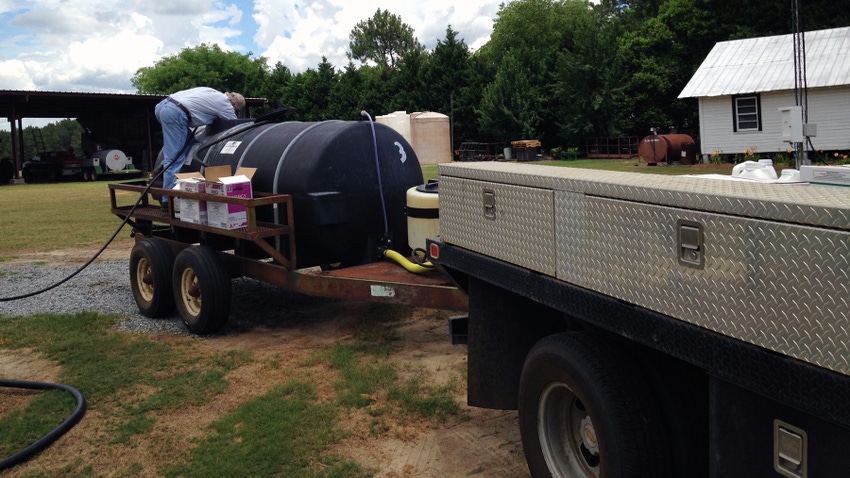March 14, 2024

One of the most common questions I received on the UGA 2024 Weed Science Revival Tour, or county weed meetings, was “Do I need to worry about water carrier pH?”
Best I can tell is that a traveling pH-adjusting salesman’s car broke down somewhere in south Georgia, so he had some extra time to chat it up with farmers in the area.
If you were to ask me to rank the many factors that influence herbicide performance, water carrier pH might (?) be on that list, but definitely not at the top. It has been my experience over the last three-plus decades that timing trumps everything.
With that said, there have been numerous studies conducted about the influence of water carrier pH on herbicide performance. I have listed a few of these recent results in Tables 1 and 2.
water-carrier-Picture1.jpg?width=700&auto=webp&quality=80&disable=upscale)
water-carrier-Picture2.jpg?width=700&auto=webp&quality=80&disable=upscale)
Interestingly, when there was a significant difference in weed control between the different water pHs, it was ≤ 8%, so not a massive train wreck. Thus, a general rule of thumb is that most herbicides should work well when using water with a pH between 4.5 and 7.5.
Remember that many herbicides such as glyphosate and clethodim are weak acids, so when they are added to a spray tank, the water pH will drop. The same thing happens with ammonium sulfate.
If you are looking for some more information about spray adjuvants, check out the Council of Producers and Distributors of Agrotechnology Adjuvant Certification Program. Adjuvants that have this certification have met 17 benchmark qualifications of a consistent and quality adjuvant.
I began my weed science career way back in 1987. Since then, I have almost never (except for volatility reduction agents with dicamba and AMS with glyphosate) added water conditioning or pH modifying adjuvants to any of my herbicide treatments on a routine basis. But, my water carrier pH values (in 3 different states) have generally been around 6 to 7, so there was really no need.
I have never been formally approached by pH adjuvant purveyors to do any real scientific testing, so maybe I have missed the boat?
Bottomline on water carrier pH, in my opinion, is to regularly have your water tested at the very least once a year. If the pH is too high (>7.5) or too low (<4.5), put something in the tank to fix it. If not, don’t worry about it. Spend more of your brain power trying to figure out a better way to spray on time with the right product and rate!
Wishing you the best of luck in 2024!
As always, good weed hunting!
Prostko is a University of Georgia Extension weed specialist.
Read more about:
HerbicideAbout the Author(s)
You May Also Like






